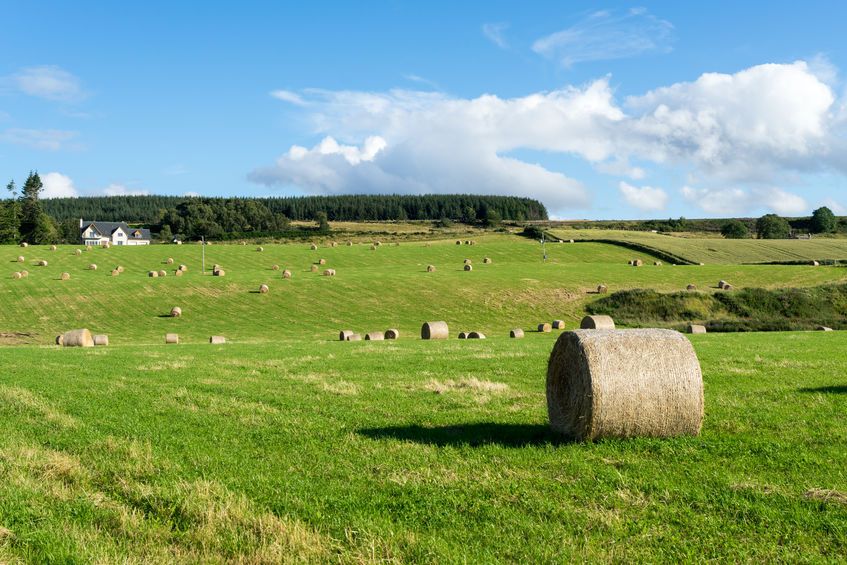
Scotland could be at the forefront of climate-friendly farming as a new report has found Scottish farmers could slash emissions by 38% by 2045.
The report by WWF Scotland said Scotland's agriculture sector could 'comfortably' reduce its greenhouse gas emissions (GHG) within the next few decades.
It highlights the most important mitigation measures which can be made on a farm level require 'little or no land use change'.
These include measures to improve nitrogen fertiliser use, improvements to animal health and breeding, rotational grazing, feed additives and using legumes to fix nitrogen.
It also identifies system level changes which could deliver significant carbon savings, including a shift to organic production, agro-forestry and conservation agriculture.
According to the report, the measures are 'feasible and well-evidenced' and can be implemented singly or in combination.
Scottish farmers are at the front line of climate change. The extreme weather of 2017-18 alone is estimated to have cost Scottish farmers £161m due to livestock losses and lower crop yields.
To help farmers adapt to the changing climate, green groups like WWF Scotland are calling on the Scottish government to review policies required to secure a reduction in emissions from agriculture.
There are opportunities in the forthcoming spring budget, the agriculture bill currently before parliament, and the revision to the climate plan in 2020 to put in place new support mechanisms for climate-friendly farming.
Dr Sheila George, Food and Environment Policy Manager at WWF Scotland said: “Agriculture is at risk from a changing climate but can be part of the climate solution.
“We need to produce food in a way that reduces emissions and locks up more carbon.
“To get there, we need to see a reframing of rural policy, financial support along with advice and training available for land managers.”
NFU Scotland responded to the release of the report, saying climate change is 'critically important' for Scottish farmers.
Ruth Taylor, Climate Change Policy Manager at the union, said: “Any policy introduced to tackle climate change must consider the long-term sustainability of farming and food production in Scotland.
“Measures to reduce emissions should provide practical measures that contribute to climate change challenges while maintaining production and driving forward the performance of agricultural businesses.
“Reducing emissions from agriculture in Scotland should not come at the expense of exporting our emissions or displacing production.
“The introduction of a suite of measures to mitigate climate change will be important - it is clear that there will be no ‘one size fits all’ solution to reducing emissions from agriculture,” she said.
In England and Wales, the farming industry is aiming to reach net zero greenhouse gas emissions by 2040 as a contribution to a new target of 2050 for the whole of the UK.
